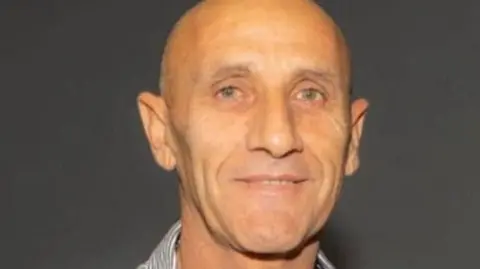In a recent development from the Israel-Gaza conflict, Israeli Prime Minister Benjamin Netanyahu confirmed that Israeli security forces have successfully recovered the bodies of two hostages from Gaza. This discovery is part of an ongoing effort to retrieve hostages held by Hamas following the violent incidents that transpired on October 7, 2023. During a Hamas-led attack, several families in Israel were directly impacted, leading to a complex situation regarding the fates of those kidnapped.
Among the identified hostages is 59-year-old Yair (Yaya) Yaakov, who was tragically killed by members of the Palestinian Islamic Jihad during the aforementioned attacks on his home in Kibbutz Nir Oz. His family, which includes two teenage sons, Or and Yagil, and partner Meirav Tal, suffered additional trauma as they were abducted during the assault yet released a month later in November 2023 as part of a ceasefire agreement. The emotional weight of his death has deeply affected his family, demonstrating the personal tragedies that intertwine with broader geopolitical conflicts.
Prime Minister Netanyahu’s announcement did not reveal the identity of the second hostage, but he indicated to that family’s representation that they had been informed of the developments regarding their loved one. Compounding the situation, as of the latest reports, 53 hostages are still in captivity within Gaza, with at least 20 believed to still be alive. The anticipation surrounding their fate continues to weigh heavily on their families and the broader Israeli society.
The communication surrounding the recovery of Yaya Yaakov’s remains was primarily initiated by his sons, who expressed their grief publicly through social media platforms, notably Instagram. Yagil Yaakov poignantly shared his thoughts, expressing love and sorrow as he came to terms with the loss of his father. Such expressions resonate not only with the Yaakov family but reflect the anguish experienced by countless families affected by the conflict.
After the retrieval of the hostages’ bodies in Khan Younis, Prime Minister Netanyahu expressed heartfelt condolences to all families grieving the loss of their loved ones. He extended gratitude to the Israeli Defense Forces (IDF) and praised their successful operation. This aspect of military operation indicates the crucial role of intelligence in recovering hostages, as highlighted by IDF statements indicating the deployment of precise intelligence from their Hostage Task Force and the Shin Bet, Israel’s internal security service.
The discourse surrounding hostage retrieval is not complete without acknowledging the sentiments of advocacy groups representing the families of the hostages. The Hostages and Missing Families Forum shared its sorrow over Yaya’s murder and emphasized the urgency of securing the release of all remaining hostages. Their calls reflect a collective emotional plea not just for their families but for the larger imperative to rescue individuals held against their will, reinforcing the oft-overlooked human cost amidst the political machinations of war.
As the conflict continues, Netanyahu mentioned ongoing efforts, proclaiming “significant progress” in negotiations or strategies aimed at furthering the release of the hostages. However, such statements have not been met with unanimous agreement, particularly from Hamas officials who consider such remarks misleading. The complexity of information and misinformation in war underscores the difficulties in understanding the realities on the ground.
Adding to the grim narrative, Israeli forces have recovered the remains of three additional hostages within the context of their military response to Hamas. Among these was Nattapong Pinta, a 35-year-old Thai national working at Kibbutz Nir Oz, who fell victim during the initial attacks. The Harrowing narrative continues with the recoveries and the ongoing search and messaging of hope for hostages still in captivity, emphasizing the critical human element intertwined with political entanglements and militant actions.
The severity of ongoing violence is starkly illustrated by casualty figures—over 55,000 individuals have reportedly been killed in the territory over the course of the conflict, with substantial numbers of affected civilians, highlighting the urgent humanitarian concerns at play amidst military operations and political maneuvering. Thus, the situation remains dynamic, characterized by heartbreak, resilience, and the unyielding hope for peace and resolution amid chaos.



